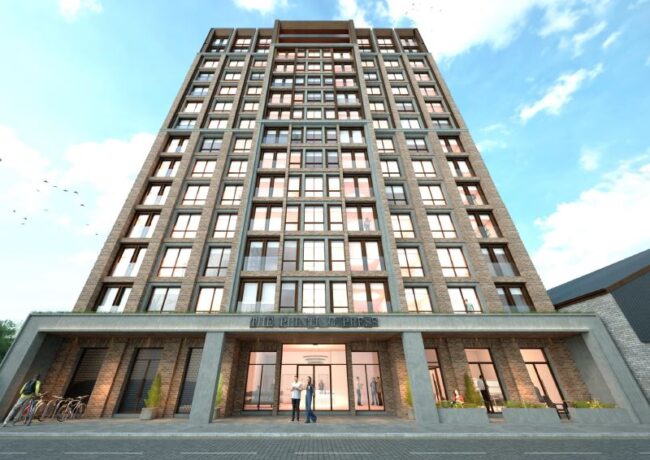Liverpool inches towards local plan
The city could formally adopt a new overarching planning strategy from September, should the council wave through recommended tweaks this week.
Public hearings into the draft Liverpool Local Plan, as part of the examinations process, closed in October last year – the document having undergone examination by two inspectors following its submission in May 2018.
While Government planning inspector David Spencer will not make his final report until later this year, a series of proposed key modifications provides a “positive indication that the plan will be found ‘sound’”, according to a report that goes before Liverpool City Council’s cabinet this Friday.
With wider attention on the city largely focused on events ignited by Merseyside Police corruption probe Operation Aloft and subsequent changes at the council in recent months, offices have progressed with modifying Liverpool’s local plan to the extent that the cabinet will now be asked to endorse the changes, triggering a new round of public consultation.
The report prepared for cabinet states that the proposed main modifications “do not fundamentally alter the strategy” and are predominantly concerned with making the plan effective – although the point on protecting the World Heritage Site may become moot. The main points remain:
- Focus development on brownfield land
- Protect open spaces (including parks and amenity spaces), Green Wedges, biodiversity and the city’s heritage assets including the World Heritage Site
- Ensure the city can meet its employment needs, and thus protects land for growth, regeneration, and job creation
- Provide a policy framework for future development at Liverpool John Lennon Airport, which will require an assessment against strict environmental criteria
- Identify a hierarchy of district and local centres in which investment for shops and services should be focused
- Manage the location and concentration of hot food takeaways
- Ensure high quality sustainable design and address climate change matters
- Require new residential development to meet national design space standards and accessibility standards.
The main modifications are mostly concerned with setting an appropriate planning context for important development areas. Some of the areas this relates to are Paddington Village and the wider Knowledge Quarter, specifically to reflect the University of Liverpool’s masterplan proposals and recognise Liverpool Hope University’s contribution.
Also recognised as specific geographic areas where policy modifications are suggested are Pumpfields, St George’s Quarter and the ports of Liverpool and Garston – both of which could see their roles change with the coming of freeport status.
Guidance on areas such as green infrastructure, student housing and protecting environmentally sensitive areas will also see changes, as well as in tall buildings, on which a report by Urban Initiatives Studio, in association with CBA and Arup, is included in the report’s appendices.
Should the cabinet approve the changes, a consultation would run for six weeks from early July.
The inspector would then be sent copies of all representations made, and if he does not wish to reopen examinations, he has indicated to Liverpool that he is keen to publish his report as soon as possible.
A further report would then go to the council’s cabinet, hopefully in time to be rubber-stamped at the scheduled September meeting of full council.





The plan mentions encouragement to build on brownfield sites, but when proposals are put forward to use these locations there are objectors queuing up to stop them, eg Pall Mall offices plan. In addition, developers are not charities. They invest and take risks to make a profit so they can re-invest further, so when they propose tall buildings and these get knocked back this reduces the profit and lowers the design/materials standards, so there must be more encouragement shown to developers to make an honest surplus.
By Anonymous
I wouldn’t trust Liverpool council to run a game of bingo in an old folks home, the most useless council in England! And now we have a leader in charge of finances who’s been bankrupt twice! You couldn’t make it up
By Bryan
How about being more proactive in attracting inward investment into the city. We are very low in the table for that. Also developers must be welcomed more and their plans projects not criticised and downgraded because of one or two councillors or self interested local community groups who object to everything that is proposed. No wonder other cities are literally streets ahead of us.
By Liverpolitis
Too little too late on all fronts. The WHS is as good as gone, the employment space is already gone, and a market of value abstraction has taken root over value added.
At least the production of the plan keeps a few council officers in jobs. Whether they deserve those jobs we probably won’t ever find out.
By Jeff
We need to change the status quo of Liverpool being a dormitory town and get rid of those who are holding us back.
By MMCD Sausage